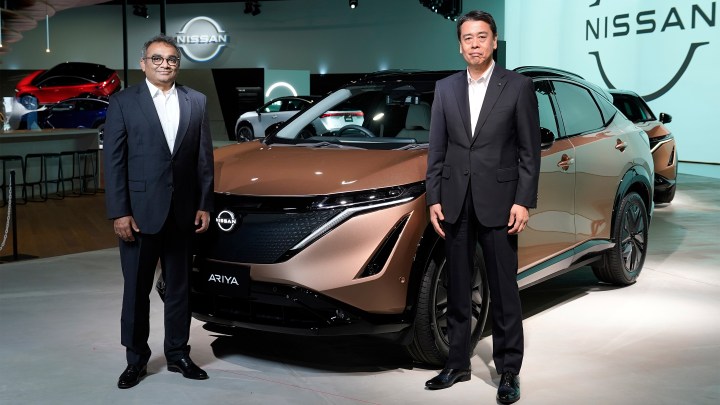
Electric vehicle makers surge on investor optimism

It may seem an odd moment — during a pandemic and recession when driving is way down — but individual and corporate investors are throwing billions of dollars at electric car and truck manufacturers.
Nissan’s stock soared 7% Wednesday after it introduced an all-electric sport utility vehicle. Tesla shares have gained more than 80% this month. Shares in Workhorse, an electric van maker, have tripled since June. Nio, a China-based e-SUV firm, saw its stock price hit an all-time high last week. Rivian, an electric pickup truck company, raised $2.5 billion last week.
What is going on?
Clearly, investors believe electric vehicles are closing in on the internal combustion engine competition when it comes to driving range, access to energy and total cost of ownership.

“I see the tipping point starting in 2025,” said Seth Goldstein, a senior equity analyst and chair of the EV committee at Morningstar. In a decade, he projects that half of all vehicles sold will be electric or hybrid. “Most electric vehicles can go 300 miles or greater on a single charge. And that is the number where consumers would say, ‘OK, now I would consider an electric vehicle.'”
Many electric vehicle makers are betting on future clean-vehicle mandates by city governments.
“Lyft recently announced that by 2030 all of their vehicles are going to be zero emission,” said Reilly Brennan, partner at the venture capital firm Trucks. “We can imagine in the next nine or so years that commercial fleets are going to have to think the same way: a UPS truck, an Amazon truck.”
Yet this seems an odd moment for EV exuberance, a time when vehicle sales and overall driving are down. Still, investors are enthusiastic longer term. Perhaps too enthusiastic.
“It happens in every other aspect of technology investing: there is an overheating,” said Evangelos Simoudis, co-founder of the venture firm Synapse Partners and the author of “Transportation Transformation: How Autonomous Mobility Will Fuel New Value Chains.” “I think particularly for passenger vehicles for the consumer, scalability in manufacturing will be an issue.”
He notes that many of the four-wheel unicorns in the market have yet to produce a single vehicle.
Longer term, however, Simoudis notes that governments in much of the world have stringent rules against auto emissions, which will accelerate the transition to low-carbon vehicles.
There’s a lot happening in the world. Through it all, Marketplace is here for you.
You rely on Marketplace to break down the world’s events and tell you how it affects you in a fact-based, approachable way. We rely on your financial support to keep making that possible.
Your donation today powers the independent journalism that you rely on. For just $5/month, you can help sustain Marketplace so we can keep reporting on the things that matter to you.











